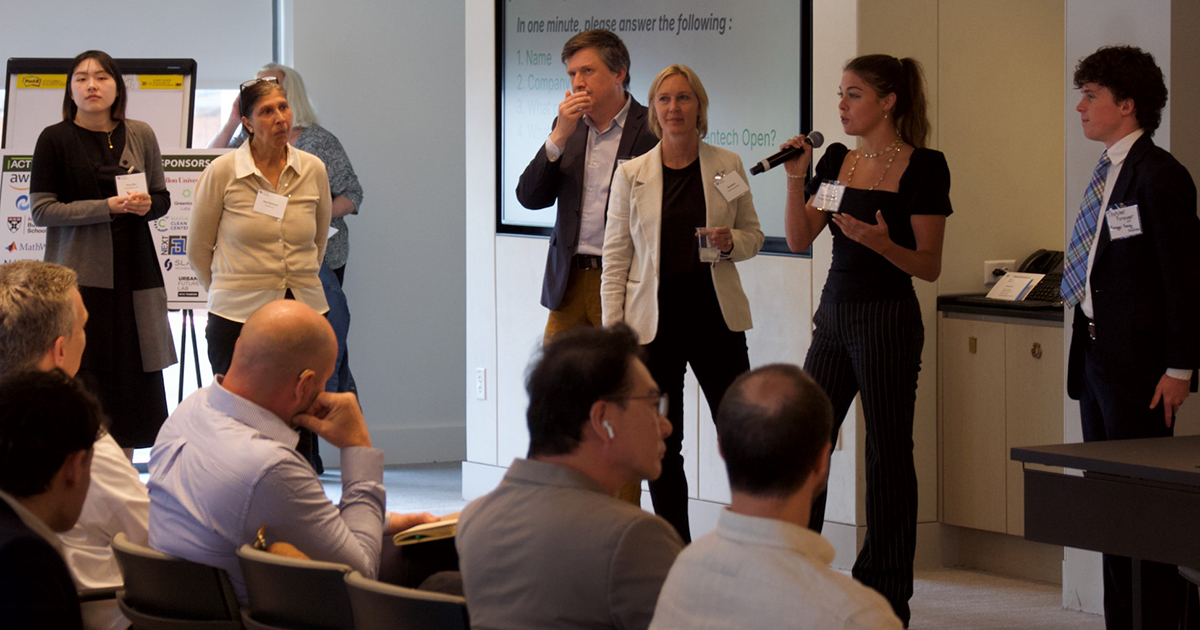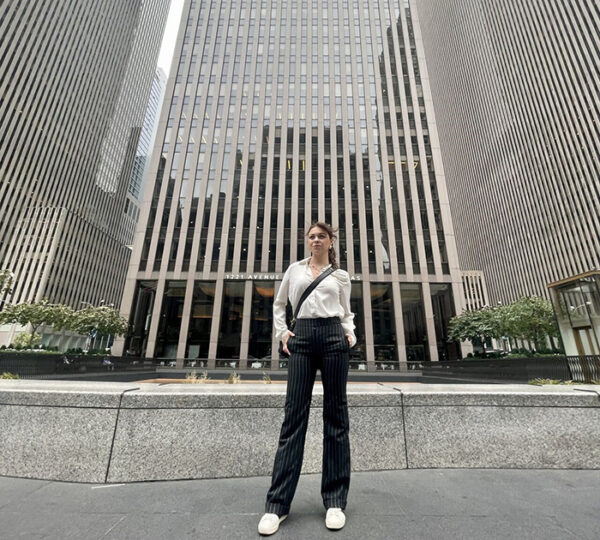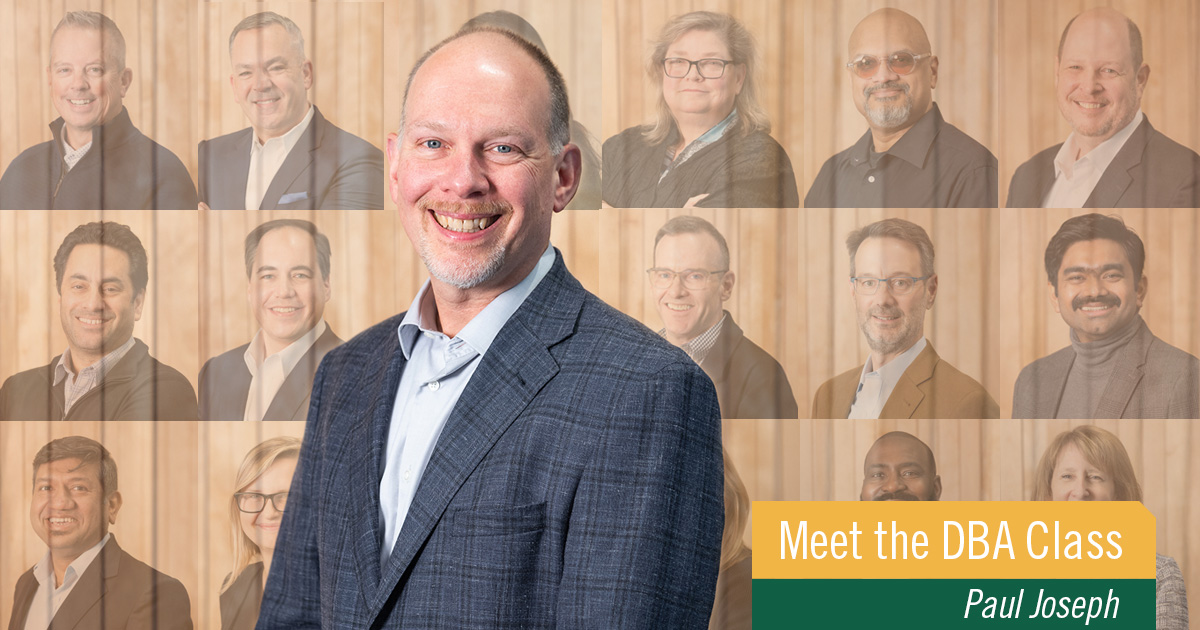Driven to Innovate, Babson Entrepreneur Reimagines Energy Use in Trucking

As one of the youngest female project leads in the Cleantech Open’s 19-year history of accelerating and funding environmentally friendly startups, it would be understandable if Lassiter Foregger ’27 felt a little uncomfortable.
As part of the nonprofit’s Northeast cohort, Foregger worked for months among more seasoned founders flying in from Singapore and France to expand their well-funded ventures with patented technologies. But, she refused to let herself get overwhelmed.
“I was intimidated at first,” she said. “But I reminded myself that the only way you are growing is if you are uncomfortable. So, I decided that if I was somewhere where I felt out of place, then I was probably in the right place.”
That philosophy might explain how Foregger ended up at the Cleantech Open in the first place, and why she decided to put her own twist on creating energy-efficient brakes for diesel-fueled trucks. Foregger, who was recruited to Babson College for track and field, didn’t grow up loving big trucks, but her obsession with tinkering and her desire to solve problems led to her company, Foregger Energy Solutions.
“Before Babson, I thought I’d go into bioengineering,” Foregger said. “But I realized I loved building things—and finding sustainable solutions that make financial sense.”
Turning Curiosity into a Company
Foregger Energy Solutions is focused on creating more affordable clean energy for heavy duty trucks by installing a regenerative braking system. Instead of using friction, regenerative brakes use an electric motor which runs in reverse when the driver brakes. That motor becomes a generator, converting the truck’s kinetic energy back into electrical energy, which is stored in a battery and eventually used to power the truck trailer’s refrigeration unit. Foregger’s inspiration for the retrofit solution, designed to reduce emissions and fuel costs, struck by chance.
While on break during her first year at Babson, Foregger stopped at a California gas station and saw diesel priced at more than $7 a gallon. “I just kept thinking, how are these trucking units making money when they’re spending this much on fuel?” she said.
“I reminded myself that the only way you are growing is if you are uncomfortable. So, I decided that if I was somewhere where I felt out of place, then I was probably in the right place.”
Lassiter Foregger ‘27
Her focus on savings is what sets her apart. “Sustainability is meant to save costs, but it’s often treated as a luxury good,” she said. “I wanted to change that.”
She began researching the trucking industry on her own—reading repair manuals, conducting market analysis, and sketching technical schematics. “People thought I was crazy,” she said. “But I loved it.”
A Business-First Approach
The system that Foregger is developing utilizes the weight of big rig trucks to power the trailers’ refrigeration, eliminating the need for additional diesel fuel. Regenerative braking is currently used in electric vehicles such as the Toyota Prius and Tesla.
“Our product isn’t about creating entirely new technology,” she said. “We’re optimizing existing components and applying them to trucking in a way that’s efficient and cost-effective. The focus is on return on investment not just performance.”
The focus on business is why she stands out in an engineering-heavy field. “Most people in this space are engineers learning business,” she said. “I’m a business student teaching myself engineering.”
Supported by Babson’s Entrepreneurial Network

Foregger refined her concept through several Babson programs, such as Rocket Pitch, while winning a seed funding competition and joining the Fast Track Cohort through the John E. and Alice L. Butler Launch Pad. With mentorship from Gail Simmons, a former “Top Chef” judge who is an entrepreneur in residence, and Alexandra Dunk MBA’22, associate director of entrepreneur programs and engagement at The Arthur M. Blank Center for Entrepreneurship, Foregger built industry connections that helped advance her venture.
One connection led to an internship at PACCAR, a global truck and engine manufacturer, where she worked on hybrid and hydrogen vehicle powertrains.
“That internship changed everything,” she said. “It gave me the technical foundation I needed to move forward. Without it, my startup probably wouldn’t have survived six months.”
Standing Out in Cleantech
At the Cleantech Open, Foregger joined more than 40 teams from around the world with more than 4,000 people in the Northeast cohort. The nonprofit accelerator program lasted for three months, capped off by a pitch competition in New York City in September.
“I met so many fantastic people there,” she said. “I got a lot of really good feedback and suggestions.”
Although her team didn’t place at the regionals, several judges reached out afterward to offer mentorship and guidance. “That validation meant a lot,” she said. “It showed that people believe in what we’re doing.”
Looking Ahead
Foregger is preparing to build her first prototypes and seeking funding to hire engineers to bring the system to life. She continues to compete, and won fourth place in the Northeast Energy and Commerce Association’s Innovation Forum. She also is applying for grants from institutions such as the Massachusetts Clean Energy Center to support development.
“Being here has given me the confidence to pursue something that once felt out of reach. This is exactly why I came to Babson.”
Lassiter Foregger ‘27
So far, Foregger Energy Solutions has largely been a one-woman enterprise. But, her younger brother, Thatcher Foregger ’28, recently transferred to Babson and assists with operations and outreach. “It’s been great to share this experience with him,” she said.
For Foregger, the journey represents what Babson entrepreneurship is all about—solving real-world problems with practical, scalable solutions. “Being here has given me the confidence to pursue something that once felt out of reach,” she said. “This is exactly why I came to Babson.”




